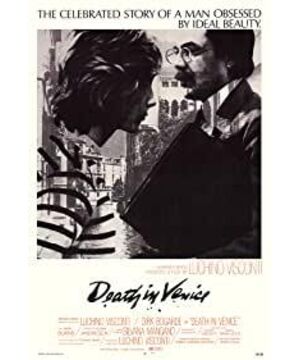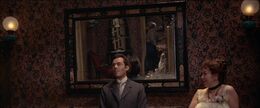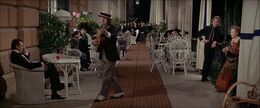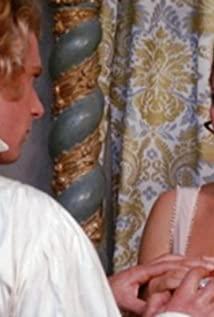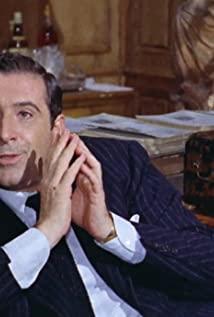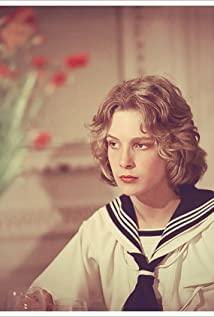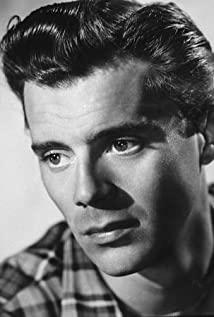Soul Broken Venice - The Beautiful Scenery The plot of the whole film is simply without any complicated stories and routines, but this simple incident took 2 hours and 10 minutes to shoot. Regarding the performance of director Visconti, the film critics of that year are said to be able to produce a table of books, because the advancement of the film lens is very slow, but it does not affect people's appreciation of it at all, which is naturally indispensable for artistic techniques. . There are too many people who can write movie reviews, so I won't go into details. I would rather talk about the soul-shattering enjoyment that the whole film brought me, and share it with those who agree. The background of the film's story takes place a few years before the First World War. The German composer Osenbach came to Venice with the pain of losing his daughter (alluding to the classical composer Mahler), hoping to recuperate. After arriving in Venice, Orsenbach met the beautiful young Tacchio. The young Tacchio's face like a Greek statue made Orsenbach indulge in excitement (an extension of Plato's thought). But then Venice was shrouded in cholera, because the officials deliberately closed the news, although Osenbach gradually discovered this amazing crisis, but in order to take a look at Tacchio, he has been following in the footsteps of Dacchio, even disregarding his own safety. , did not want to leave Venice, which was shrouded in plague, and finally died in the city of Venice because he ate overripe strawberries. The story looks very monotonous, but human nature looks very paranoid. This paranoia hides the fanatical love and tireless pursuit of beauty and ideals. Few people can understand this feeling. Same-sex love is still marginal in our society, let alone before and after World War II? The composer Orsenbach is a traditional artist, what is a traditional artist? The part where he argued with his friend in the movie left a deep impression on me. His understanding of art was far inferior to that of his friend. His friend was crazy, obsessed, bold, and crazy. Is it the basis of mediocrity? That's mediocrity." As soon as I finished speaking, I almost stood up and clapped my hands. However, the artist's thinking is very stubborn, not stubbornly pursuing beauty, but stubbornly creating good music according to certain established constraints and the world. I think this kind of thinking is extremely terrifying for a person who makes a living from artistic aesthetics. , because beauty is created, beauty is fluid, and beauty exists in the heart not the brain. So the protagonist is caught in a creative crisis. The dialogue on the thinking of art and life in the film is also very classic and worth thinking about. And at this time, the feeling of the whole movie changed from the initial confusion to the beauty, and it was this beautiful word that made me fascinated. Dacchio appeared, and there were many beauties in the movie, but this beautiful Greek boy alone made people crazy, as if his beauty was everything, as Wilde said: "Beautiful things make mistakes, or I Forgive him indiscriminately; ugly things have made mistakes and I will despise them regardless of my conscience." It was this sentence that aroused the fanatical pursuit of beauty in my heart. Well, the two protagonists have appeared. At the beginning, our traditional artists discovered our beautiful Dacchio with a pair of sharp eyes and a different aesthetic taste, and the tragic but beautiful prelude began from this... Composition When he met a boy by chance, he had the kind of peculiar love for men that he might have had for the first time in his life. He didn't dare to face it. There was a cowardly factor in his bones. Rebel, he said with friends, friends almost scolded him for escapism and his true inner world, he was obsessed with pain, sadness, regret, struggle, and contradictory performances in the movie, and almost completely brought me into him The world experienced the collision of reason and emotion with him. How many consciences in human nature can withstand such damage? On the one hand, he suffers from his aging skin, on the other hand, he falls in love with a beautiful woman but suffers from the inner torment. Yet the film is not so much about love as it is about art, beauty and humanity. So if he indulges in this kind of pain, there will be no beauty, so there is a story... When he finds the love that is deformed in his heart, he chooses to leave Venice, but because the luggage is transported to the wrong place, he cannot If he doesn't go back to Venice, he wants to come now. If he doesn't go back, his life will not end, but if he doesn't go back, the rest of his life will be extremely mediocre! I would rather see a life that is beautiful and short rather than the shape of a secular person. So when I saw his figured out happy face on the returning boat, I thought to myself: "Go back, go to your grave." And at the same time thought: "Go, go after beauty!". The whole movie is also slowly moving forward in such contradictions... At this time he began to follow Daccio recklessly, mainly disregarding face and dignity, he even followed and peeped at his every move, admired every detail of his body, went to the barber shop to apply grease and powder like a girl (a The old man put on foundation, that scene is really unbearable...), just to be able to notice that he knew him when Daccio turned his head, but after he really met him, he shyly hides like a girl Open, after thinking about it, isn't his action a beautiful performance? He carefully guards the story that belongs only to Daccio and him. Although it is his own story, he avoids his attention. Even in the whole film, the two of them don't say a word, and they don't have much contact. When he begged his mother to take Dacchio away from Venice to avoid being infected, he gently stroked his head, and the stroke was also careful, lest he sully this beautiful and pure godlike child, but the camera suddenly turned, it turned out that they The only contact between them was his fantasy, so some film critics interpret Dacchio's sometimes provocative, sometimes incomprehensible, and sometimes tender glances as the composer's auto-suggestion or psychological imagination, and the whole story is nothing but a pitiful fantasy of one person. As for Dazio's seemingly inadvertent gaze, I prefer to understand it as the subtle hints and tacit understanding between them mentioned in the original book, and I also secretly experienced a true love that is not allowed in the world without knowing it. Later, the cholera virus in Venice invaded his body, and his death was approaching. The shadow of the teenager still appeared in his dream, but the scene changed to the dirty streets of Venice disturbed by the virus. The teenager fled with his family in a hurry. The boy met unexpectedly, just like in reality, he escaped, but still followed him tirelessly, he fell to the side due to lack of energy, but he actually laughed out loud at this time in the dream, this is me The most confusing episode, I can't figure out how much pain is hidden in this laugh... I don't fully understand the emotions between men who are both brothers and lovers, they are fragile, lonely, eager to be spoiled, sensitive, delicate, Melancholy, having an unusual experience will inevitably lead to the rebellion of the soul and the pain and grief as always... and there is a wonderful sense of art in this grief, a kind of love for beauty, love and death. Infatuation. Speaking of death, this is the tear gas often associated with love. In the past, when I watched a movie, as long as the hero died, I would basically cry out of breath, even if the hero was a dog, but facing him I didn't cry in the last death, I still laughed in my heart. Because the last scene was too unforgettable, that scene did not symbolize death, but filled people with gratitude and hope, the beach and the sea, the boy and a person who silently loved him formed the most beautiful picture in the world, the scene of that picture The effect is astonishingly beautiful! ! I'm so glad I saw its charm so clearly. As the introduction said, the composer was resting on a chair on the beach because he was unwell. In fact, he already knew that the cholera virus in Venice had spread, but in order to see the beautiful woman in his heart, he could give his life to the god of death. The ruling, as if the restlessness in his heart finally took effect, as if to say: "I defend the beauty with my life!" At this time, the background music became Mahler's Fifth Symphony, and a film critic once expressed it so nakedly: "The author can hear gay tendencies in this music. Anyone who can play this piece well is also gay. I dare to say that being gay is an art. It is said that gay lovers often die in Venice, and they must listen to this song before dying." Paranoid and ridiculous comment, but the fact that the director, writer, and performer are all gay is probably not some kind of coincidence. With the music, his life became more and more fragile, but his soul became stronger and stronger, and he gradually got rid of his skin and flew to the young man ahead. It became a black silhouette, and the beautiful figure was fully revealed. The young man turned his head slowly and could not see its expression clearly, but the beauty never disappeared. At this moment, I'm dying... I really admire this director. He can use his superb storytelling suspense skills to endow a simple plot with such perfect beauty, and can use such a gentle and slightly sad lens to describe the artist's frenzied excitement. In the inner world, you can use the most tender pictures to describe the death that everyone talks about... Sometimes, perhaps beauty contains death, and this film is a poem.
View more about Death in Venice reviews


